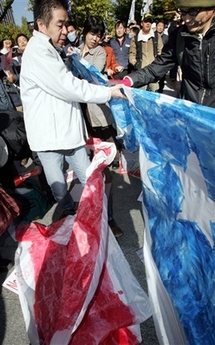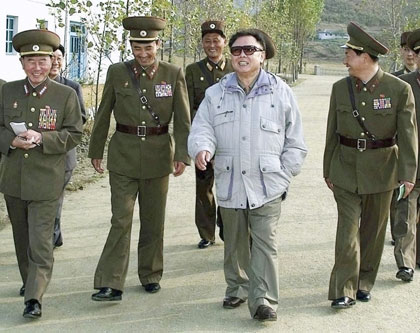Latest Development
SKorea balks at measures to sanction North
(AP)
Updated: 2006-11-13 15:55
 |
Large Medium Small |
SEOUL, South Korea - South Korea balked Monday at participating in a US-led plan that foresees intercepting North Korean ships suspected of carrying supplies for nuclear and missile weapons programs.
 South Korean protesters tear a US flag during a rally against sanctions against North Korea near the US embassy in Seoul Sunday, Nov. 12, 2006. [AP]  |
South Korea is finalizing a report on how it would carry out the UN sanctions slapped on North Korea in response to the nuclear test.
Park In-kook, a deputy foreign minister, said Seoul already participated in various regimes to control weapons of mass destruction, and wouldn't formally join the US-led Proliferation Security Initiative, a campaign aimed largely at stopping North Korean weapons traffic by sea.
However, the South will continue a hold on regular humanitarian aid to the North, said Lee Kwan-se, a Unification Ministry official. Seoul suspended the aid in July after North Korea test-launched a series of missiles over international objections.
Lee also said South Korea will suspend its subsidies for a tourism program at the North's Diamond Mountain resort. Those subsidies are believed to be relatively small and intended simply to fund trips by those - mainly students - who can't afford the expensive, multi-day tours.
South Korea's report to the UN sanctions committee on how it would carry out the resolution unanimously adopted after the North's nuclear test was expected to be submitted Monday.
|
Park said Monday that the South would ban travel by those North Korean officials named by the UN committee.
Seoul has participated in the US-led ship interdiction program known as the Proliferation Security Initiative, or PSI, only as an observer.
The two Koreas are still technically at war, as the 1950-53 Korean War ended in a truce, not a peace treaty. But their relations have warmed since the first, and only, summit of their leaders in 2000, with Seoul pursuing engagement rather than confrontation under the so-called sunshine policy.
